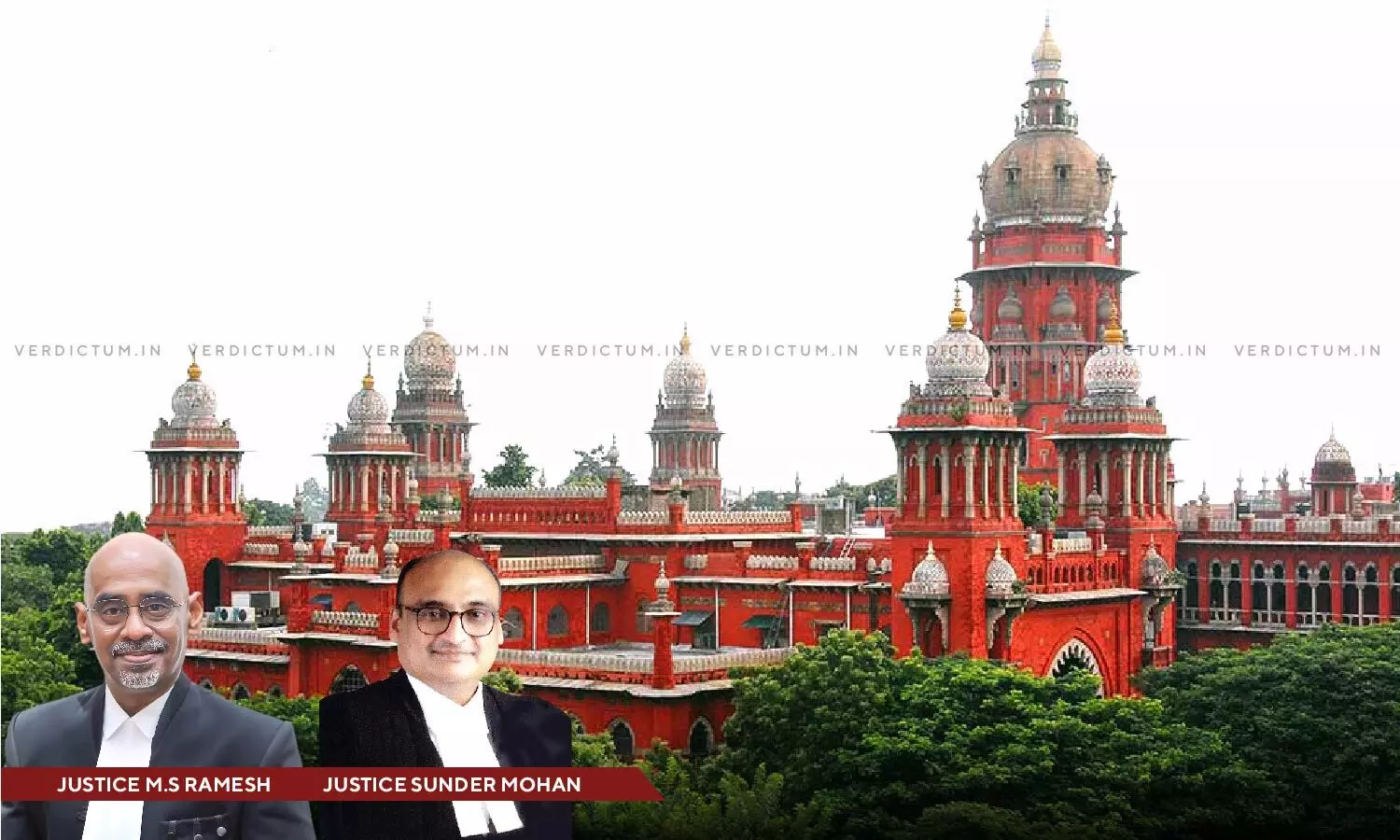
Scheming Attempt By Her Mother & Elder Sister To Appropriate Child’s Custody: Madras HC Quashes POCSO Case Against Mother Of Minor Child
 |
|The Madras High Court has quashed a criminal case for the offences under the Protection of Child from Sexual Offences Act, 2012 ('POCSO Act') against a mother and granted the custody of her minor daughter after it suspected a scheming attempt of her elder sister and mother to appropriate the custody of the child.
The Division Bench of Justice MS Ramesh and Justice Sunder Mohan has held, “…we have no hesitation to hold that there was absolutely no iota of legally permissible evidences before the Investigating Officer, to rope in the mother of the child as an accused for the offences under the POCSO Act, especially when the victim in her statement under Section 164 Cr.P.C. has not relied about the alleged abetment or attributed knowledge to the petitioner. This apart, there also arises a strong suspicion that a scheming attempt may have been made by the 3rd and 4th respondents to appropriate the custody of the child, by roping in the petitioner as an accused for the offences under the POCSO Act, which would be gross abuse of the due process of law. In these circumstances and in order to secure the ends of justice, we are constrained to invoke our powers under Article 226 of the Constitution of India to quash the criminal proceedings, as against the petitioner herein.”
Senior Advocate Abudu Kumar Rajarathinam for the Petitioner while Senior Advocate S Prabakaran and Additional Public Prosecutor A. Gokulakrishnan appeared for the Respondents.
A habeas corpus writ petition was filed seeking directions to the Respondents to produce the Petitioner-Mother’s minor daughter and hand her to the Petitioner. The Third Respondent is the elder sister of the Petitioner who resided in Singapore and the Fourth Respondent is her mother.
The petitioner temporarily left her minor daughter in the custody of her Mother-respondent. After that, she used to visit her child every weekend. Later, the Petitioner was informed that her daughter was brought to Chennai, and she had visited her in the presence of both the 3rd and 4th respondents. On the next day, the petitioner's husband was arrested by the Respondent-Police in connection with a crime for the offences under Sections 5(m)(n)(l) and 6(1) of the POCSO Act and remanded to judicial custody, based on the 3rd respondent's complaint that he had sexually assaulted his daughter. After this incident, both 3rd and 4th Respondents had retained custody of the child and refused to hand her over to the petitioner. The Petitioner-Mother was also arrayed as the Second Accused in the chargesheet, altering the offences to Sections 5(m), 5(l), 5(n) read with 16 and 21 of the POCSO Act.
The Court interacted with the minor who was 5 years old. She interacted with the Court with much clarity and maturity. As per her version, she intended to live under the care and protection of her mother-petitioner only, although she liked the 3rd and 4th Respondents. She also stated before the Court that she liked her father and that after her bath, he used to dry her roughly with a towel, which she did not like. Thereafter, when a choice was given to the minor child as to under whose care and protection she would like to be, she opted for her mother in very clear terms before the Court.
It was the submission of the counsel for the petitioner that the entire episode of bringing in the petitioner as an accused in the criminal case for the offences under the POCSO Act, was with an ulterior motive of having both the biological parents of the child under imprisonment, to gain custody of the child by the petitioner's sister.
The Court said, “We had also, in the preceding portions of the order, observed that there were no incriminating statements of the child made before the Metropolitan Magistrate under Section 164 Cr.P.C. to even remotely indicate that the petitioner had knowledge of the alleged sexual assault by her husband or that she had failed to report about the offence. While that being so, we see no reason as to why the child's custody should be denied to her mother. Thus, we are of the view that the petitioner would be entitled to succeed in the present HCP and the custody of the child be ordered to be retained with the petitioner/mother.”
Accordingly, the Court, exercising its powers under Article 226 of the Constitution and allowing the habeas corpus petition, quashed the criminal case against the Petitioner-Mother and ordered the custody of the minor daughter to the Petitioner-Mother.
Cause Title: Dharani v. The State and Ors. (Neutral Citation: 2024:MHC:3094)
Appearances:
Petitioner: Senior Advocate Abudu Kumar Rajarathinam and Advocate M Suresh
Respondents: Senior Advocate S Prabakaran, Additional Public Prosecutor A. Gokulakrishnan and Advocate C Uma